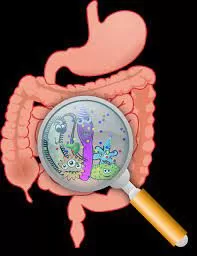A new study led by researchers at Dartmouth, in collaboration with Harvard Medical School, has found that early exposure to even a minuscule dose of herpes simplex virus (HSV) in infant mice can lead to cognitive decline later in life. The study, published in PLOS Pathogens, highlights the potential long-term neurological effects of neonatal HSV infections and their possible link to neurodegenerative diseases such as Alzheimer’s.
HSV infections are widespread and typically affect the skin and nervous system. While they often remain dormant in the body without causing severe health issues, the virus can be particularly dangerous for newborns with underdeveloped immune systems. Neonatal HSV, which has high rates of morbidity and mortality, affects approximately 14,000 newborns worldwide each year.
“Clinical outcomes of neonatal HSV infections with apparent symptoms have been well-documented. However, little has been known about asymptomatic neonatal HSV and its long-term neurological effects,” said Dr. David Leib, Ph.D., chair and professor of Microbiology and Immunology at Dartmouth’s Geisel School of Medicine and corresponding author of the study.
The research, led by Abigail Dutton and Evelyn Turnbaugh—both doctoral candidates at Dartmouth—aimed to investigate the potential cognitive effects of asymptomatic neonatal HSV infections. Using an innovative low-dose intranasal infection model, the team introduced the virus to one-day-old mouse pups, allowed them to mature for six months, and then tested their cognitive and memory functions.
The results were striking. “Mice exposed to a tiny dose of HSV as neonates showed significant impairments in learning and memory compared to the uninfected control group. This suggests that even low-level infections in newborns can have lasting consequences despite showing no symptoms at the time of infection,” Leib explained.
On a hopeful note, the study found that maternal vaccination could mitigate these effects. “When mother mice were vaccinated against HSV, their offspring were protected from infection and associated cognitive decline, thanks to antibodies passed through the placenta or milk,” Leib noted. This finding reinforces the potential benefits of maternal vaccination in preventing neurological impairments in newborns.
Moving forward, the research team plans to explore pharmacological approaches to mitigate the virus’s cognitive effects. “We are investigating whether antiviral drugs can prevent virus reactivation or if anti-inflammatory drugs can reduce immune-mediated damage. Understanding the mechanism behind the cognitive impairment could open new avenues for intervention,” Leib added.
The study’s findings could have significant implications for understanding and preventing neurodegenerative disorders like Alzheimer’s disease.
Disclaimer: This article is based on preclinical research conducted in mice. While the findings provide valuable insights into neonatal HSV infections, further studies are needed to determine their relevance to human health. Always consult a healthcare professional for medical advice and information.











